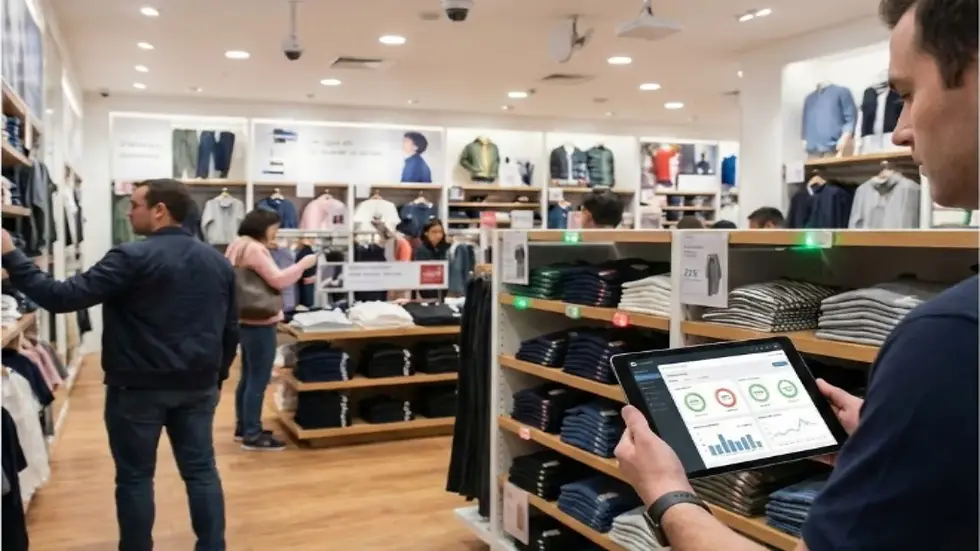Modern Retail Technology Transformation Ideas | Rockbird Media Insights
- Nov 21, 2025
- 4 min read
Updated: Nov 24, 2025

In today’s fast-paced market, retail businesses must evolve or risk falling behind. The digital age demands more than just an online presence. It calls for a comprehensive overhaul of how retailers operate, engage customers, and leverage technology. I’ve seen firsthand how embracing modern retail technology transformation ideas can unlock new opportunities and drive sustainable growth. Let’s dive into the strategies that are reshaping retail and how you can apply them effectively.
Embracing Retail Technology Transformation Ideas for Competitive Advantage
Retail technology transformation ideas are no longer optional; they are essential. From AI-powered inventory management to immersive customer experiences, technology is the backbone of modern retail success. Here’s what I recommend focusing on:
Omnichannel Integration: Customers expect seamless experiences whether they shop online, in-store, or via mobile apps. Integrating these channels ensures consistent service and data flow.
Data-Driven Decision Making: Use analytics to understand buying patterns, optimize stock levels, and personalize marketing efforts.
Automation and AI: Automate routine tasks like restocking and customer service with chatbots to free up human resources for higher-value activities.
Mobile-First Solutions: With mobile shopping on the rise, ensure your platforms are optimized for smartphones and tablets.
For example, a retailer implementing AI-driven demand forecasting reduced stockouts by 30%, improving customer satisfaction and sales. These ideas are not just trends; they are proven methods to stay ahead.

Key Technologies Driving Retail Transformation
Understanding the technologies behind retail transformation helps in making informed decisions. Here are some game-changers:
1. Artificial Intelligence and Machine Learning
AI analyzes vast amounts of data to predict trends, personalize offers, and optimize supply chains. Machine learning models improve over time, making predictions more accurate and actionable.
2. Internet of Things (IoT)
IoT devices track inventory in real-time, monitor equipment health, and enhance in-store experiences. Smart shelves and connected sensors reduce losses and improve efficiency.
3. Augmented Reality (AR) and Virtual Reality (VR)
AR and VR create immersive shopping experiences. Customers can virtually try products or visualize how items fit in their homes, increasing engagement and reducing returns.
4. Blockchain for Transparency
Blockchain technology ensures product authenticity and traceability, which is crucial for luxury goods and food safety.
5. Cloud Computing
Cloud platforms offer scalable infrastructure for data storage, analytics, and application deployment, enabling retailers to innovate rapidly without heavy upfront investments.
By combining these technologies, retailers can build a robust ecosystem that supports growth and agility.

Implementing Digital Transformation Strategies in Retail
Adopting digital transformation strategies requires a clear roadmap and commitment. Here’s a step-by-step approach I recommend:
Assess Current Capabilities
Conduct a thorough audit of existing technology, processes, and skills. Identify gaps and opportunities.
Define Clear Objectives
Set measurable goals such as improving customer retention, reducing costs, or increasing sales through digital channels.
Engage Stakeholders
Involve teams across departments to ensure buy-in and gather diverse insights.
Choose the Right Technologies
Select tools that align with your goals and integrate well with existing systems.
Pilot and Iterate
Start with small-scale pilots to test solutions, gather feedback, and refine before full deployment.
Train and Support Staff
Equip your workforce with the skills needed to leverage new technologies effectively.
Measure and Optimize
Use KPIs to track progress and continuously improve your digital initiatives.
This structured approach minimizes risks and maximizes the impact of your transformation efforts.
Enhancing Customer Experience Through Technology
Customer experience is the heart of retail success. Technology offers powerful ways to delight customers and build loyalty:
Personalized Recommendations: AI analyzes purchase history and browsing behavior to suggest relevant products.
Contactless Payments: Speed up checkout and improve safety with mobile wallets and NFC technology.
Smart Loyalty Programs: Use data to tailor rewards and promotions that resonate with individual customers.
Virtual Assistants: Chatbots and voice assistants provide instant support and product information 24/7.
In-Store Digital Displays: Interactive screens engage shoppers and provide real-time promotions.
For instance, a retailer using AR mirrors allowed customers to try on clothes virtually, increasing conversion rates by 20%. These innovations create memorable experiences that keep customers coming back.
Preparing for the Future of Retail Technology
The retail landscape will continue to evolve rapidly. Staying ahead means embracing continuous innovation and flexibility. Here are some future-focused ideas:
Sustainability Tech: Use technology to track and reduce environmental impact, appealing to eco-conscious consumers.
5G Connectivity: Faster networks will enable richer mobile experiences and real-time data processing.
Advanced Robotics: Robots will assist with inventory management, delivery, and even customer service.
Hyper-Personalization: AI will deliver even more precise and dynamic customer interactions.
Collaborative Ecosystems: Retailers will partner with tech providers, startups, and other businesses to co-create value.
By investing in these areas, retailers can build resilience and capitalize on emerging opportunities.
Retail technology transformation ideas are not just about adopting new tools; they are about rethinking how business is done. With the right strategies, retailers can unlock growth, improve efficiency, and create exceptional customer experiences. The journey may be challenging, but the rewards are well worth the effort. Let’s embrace the future of retail with confidence and innovation.




Comments